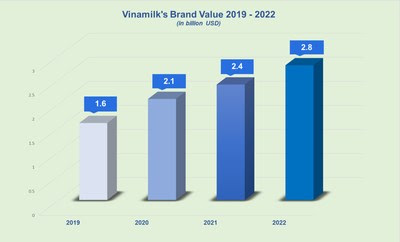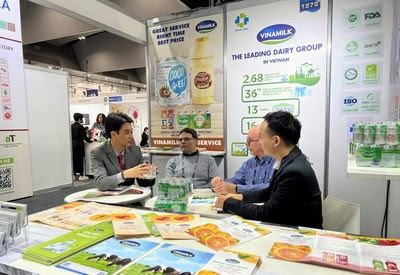contributed to ARASIA’s achievements over the past two decades.
At the interactive session, Exploring Electricity Sector Decarbonization with PowerInvest, participants were challenged to set a country’s electricity generation mix, optimizing it for emissions reduction, and for costs and supply reliability, using the PowerInvest tool. At the event attendees also explored ways of balancing these objectives with the need for sustainable use of land, water and critical mineral resources.
Attendees at the event Comprehensive Safeguards Capacity Building for States: ISSAS and COMPASS celebrated the cooperation between States and the IAEA in strengthening State systems of accounting for and control of nuclear material (SSACs) and State or regional authorities responsible for safeguards implementation (SRAs). The event highlighted the assistance provided by the IAEA in this area, specifically the IAEA Comprehensive Capacity-Building Initiative for SSACs and SRAs (COMPASS) and the IAEA Safeguards and SSAC Advisory Service (ISSAS).
At the event, 18 Years of the Programme on Nuclear Security at Major Public Events, delegates came together to mark the success of the Agency’s Programme on Nuclear Security at Major Public Events. Participants learned about the IAEA’s support and assistance in this area, and also focused on the ways in which the IAEA can continue enhancing its support to strengthen countries’ capabilities in nuclear security when hosting events that draw media attention and public interest.
Participants at the IAEA Resources for Technical and Statistical Information on Nuclear Fuel Cycle Activities Worldwide event, gained an overview of the various resources available under the Integrated Nuclear Fuel Cycle Information System.
Increasing the number of women that pursue careers in nuclear fields, and building human resource strategies to create inclusive talent development in nuclear organizations, were the key topics discussed at the event, Human Resource Strategies for Gender Equality in Nuclear Organizations. During a panel discussion with IAEA staff and international experts from non-profit organizations and the private sector, participants discussed ways of attracting more women to careers in the nuclear field, including building talent outreach strategies, developing global partnerships as well as changing the narrative about the nuclear field.
Participants at the interactive event Leading for Safety: An Interactive Introduction to the International School on Nuclear and Radiological Leadership for Safety discussed key issues for sustainable nuclear safety in practice. At the event, participants highlighted the importance of insight into group behaviour from diverse points of view, and advanced knowledge of nuclear security and safety culture.
The Water Security in a Changing World event, co-organized by the IAEA and UNESCO (Division of Water Sciences) showcased the ways in which nuclear techniques can help Member States evaluate the sustainability of their water resources. At the event participants learned about the interlinkages between different water reservoirs, the need to maintain biodiversity while meeting human demand, and the long-term impact of climate change on transboundary water resource security.
Member States’ activities:
The event Strengthening Nuclear Security Through Capacity Building and Education, organized by the European Union, the IAEA and the Czech Republic, covered the experience of the EU and the IAEA in supporting capacity building and education in nuclear security in Member States, and showcased the nuclear security achievements of the Centres of Excellence in Eastern and Central Africa.
The importance of international emergency preparedness and response (EPR) tools and mechanisms was the focus of the event, International Emergency Preparedness and Response (EPR): Tools and Capacity Building, organized by the United States of America. During the session, experts shared their perspectives on the experience of using such tools, and on EPR capacity building.
How the NUWARD small modular reactor (SMR) can offer a sustainable solution for quick access to baseload, dispatchable, affordable and low carbon power generation, was the topic of the NUWARD: Leading the Way to a Sustainable SMR Market event, organized by France. Attendees were given updates on NUWARD’s development, its structuring and partnership strategy, and the EU licencing strategy.
The Application of Non-destructive Testing for Cultural Heritage and Post-disaster Intervention event, organized by Italy, showcased Italy’s experience in this field and in preserving cultural heritage. At the event, the contribution of the Italian Society for Non-Destructive Testing Monitoring Diagnostics (AIPnD) to IAEA activities and technical cooperation projects, was highlighted.
At the virtual event, Decommissioning and Radioactive Waste Management: Lessons from the Past, Adapting to the Challenges of the Present and Sustainable Technologies for the Future, organized by the Russian Federation, participants learned about Russian activities in decommissioning and radioactive waste management. The event featured a discussion on scientific and technical collaboration to raise awareness of the importance of addressing decommissioning as a part of a sustainable future.
The event, 25 Years Joint Convention: A Proven Instrument for Improving Nuclear Safety and Promoting Transparency and Public Confidence in Spent Fuel and Radioactive Waste Management, organized by Switzerland, highlighted the importance of the Joint Convention on the Spent Fuel Management and on the Safety of Radioactive Waste Management, a unique ‘incentive’ instrument that addresses the safety of spent fuel and radioactive waste management on a global scale.
At the Modern Innovations and Belgian Know-how in Nuclear Cancer Therapy, Diagnostics and Theranostics event, organized by Belgium, experts presented key administrative and safety aspects of medical applications of ionizing radiation, and illustrated how innovative applications of ionizing radiation help in the fight against cancer.
The role that nuclear technologies play in enabling countries and communities to adapt to a changing climate was the focus of the Nuclear Sciences and Technology for Climate Adaptation event, organized by the United Kingdom.
The Redesignation of the CEA as an ICERR in Partnership with the IRSN event, organized by France, focused on the feedback from IAEA Member States on the French Alternative Energies and Atomic Energy Commission’s (CEA’s) first designation period as an IAEA-designated International Centre based on Research Reactor (ICERR). Participants also discussed the new scope of the CEA–IRSN designation and the potential links with other organizations.
Discussions at the virtual event, Sustainability Compliance Criteria of the EU Taxonomy for Nuclear Energy, organized by the Russian Federation, focused on the role of nuclear energy in the energy transition, safety of nuclear power plant operations, advances in developing tolerant fuel, technological solutions for closing the fuel cycle and reprocessing of spent nuclear fuel, and overall compliance with the criteria of the Complementary Climate Delegated Act to the EU Taxonomy.
Experts at the event, The Development of Alpha-emitting Radiopharmaceuticals, the Supply of Astatine-211 and the Role of International Organizations, organized by Japan, discussed the status of development of the alpha-emitting radiopharmaceutical astatine-211, the supply chains of such rare isotopes, and the potential role of international organizations in their practical use.
At the Trends in Nuclear Education virtual session, organized by the Russian Federation, discussions took place about the current trends in nuclear education and new science, technology, engineering and mathematics programmes. Participants also discussed how university networks can help enable cross-university cooperation and new research and education projects.
At the event Internet Reactor Laboratories: Remote Practical Learning Using Research Reactors, organized by Argentina, participants were introduced to the Internet Reactor Laboratories, established with IAEA support in four geographical regions to provide remote access to experiments conducted at research reactors for students and young professionals located in other countries. Attendees were also able to observe a live demonstration of a training session broadcast from one of the host reactors.
Representatives from Indonesia showcased a programme for capacity building in nuclear science and technology in other developing countries, as a framework for enhancing technical cooperation among developing countries and strengthening South–South cooperation, at the event, Promoting Capacity Building in Nuclear Science and Technology. Participants heard about how the programme builds on IAEA technical cooperation projects, student exchanges and internships, as well as researcher visits and post-doctoral programmes.
At an event, SMR Deployment Timelines: US Industry Updates, organized by the United States of America, US industry representatives from companies with plans to deploy small modular reactors (SMRs) by 2029 provided updates on their technology and timelines.
Technical experts presented the top five misconceptions about advanced reactors and their uses at the Advanced Reactors: Myths and Misconceptions event, organized by the United States of America.
During the event, Commemoration of the 30th Anniversary of the EUR Organization, organized by France, the European Utility Requirements (EUR) Organization showcased its achievements.
Source: International Atomic Energy Agency



